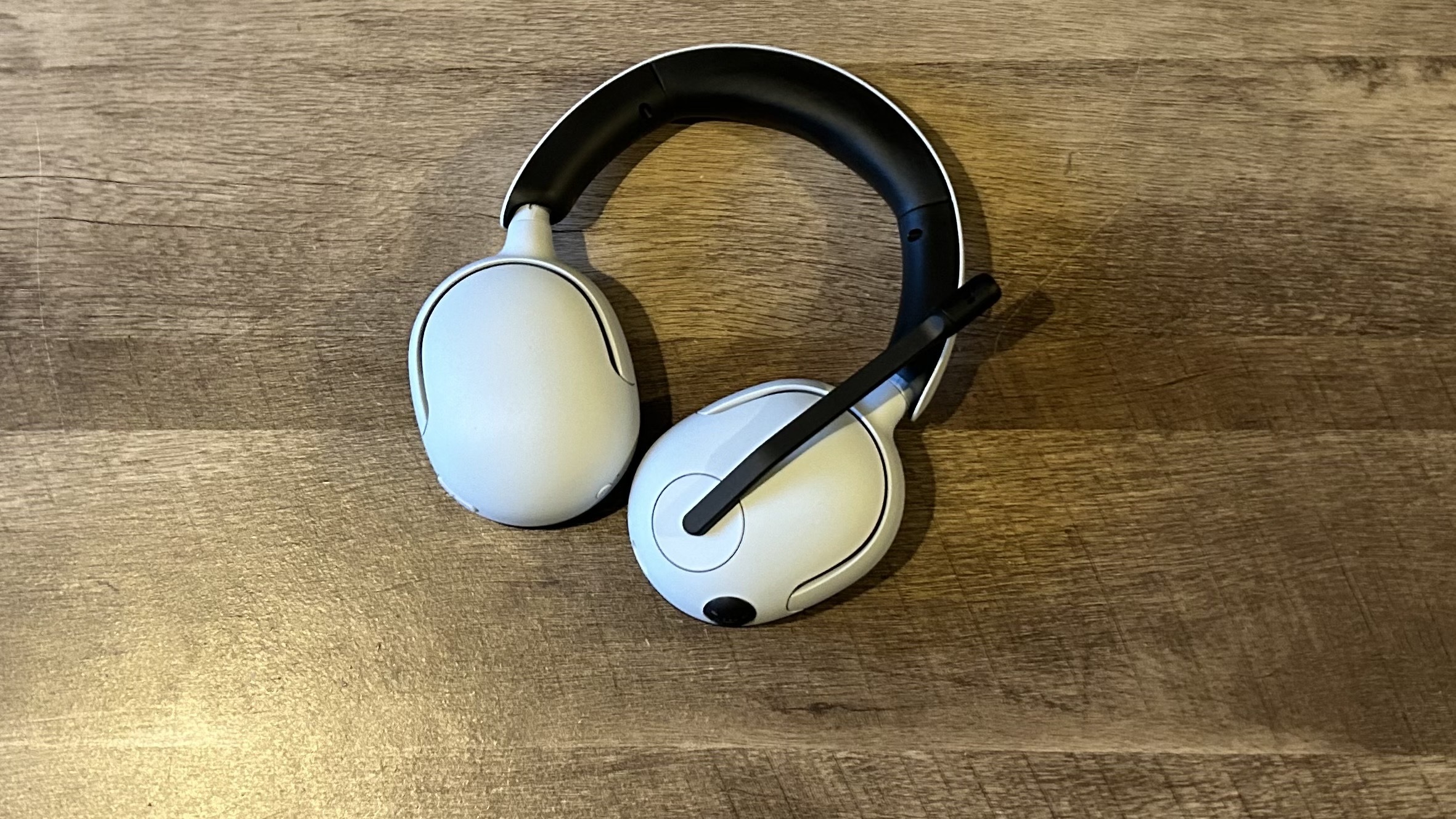GamesRadar+ Verdict
The Sony Inzone H5 provides fantastic audio with second to none comfort and a fantastic spatial audio system on PC, but the lack of PS5 features mean this is a headset that sits happiest in the middle of two systems.
Pros
- +
Incredibly comfortable
- +
Excellent spatial audio
- +
Solid battery life with fast charge
- +
Robust, textured soundstage
- +
Slick design
Cons
- -
PC settings don't transfer to PS5
- -
Awkward USB-A 2.4GHz compatibility
Why you can trust GamesRadar+
The Sony Inzone H5 took a little while to catch up to its siblings, but it's finally on the shelves now and bridging the gap between the budget H3 and premium H7. At $149.99 / £139.99 it's going up against some particularly strong competition in the sub-$100 category, while also feeling the pressure from above with the likes of the HyperX Cloud Alpha Wireless's turbo battery at just $40 more.
Still, its the first Sony Inzone headset to offer a mic with AI noise reduction and the first to pack both wired and wireless connections. Combine that with the series' well celebrated 360 spatial audio, crisp PS5 inspired aesthetic and long-lasting comfort and the H5 holds itself well in this competitive arena. I put the latest release against some of the best gaming headsets on the market over the course of three weeks to see how well it fares in practice.
| Price | $149.99 / £139.99 |
| Connection | 2.4GHz / wired |
| Drivers | 40mm |
| Frequency response | 5Hz - 20kHz |
| Microphone | Bidirectional with AI noise reduction |
| ANC | None |
| Controls | Power, volume, chat mix |
| Battery | 28 hours |
| Weight | 260g |
| Compatibility | PS5, PS4, PC |
Design
The Sony Inzone H5 doesn't stray too far from the design language of its siblings. In fact, it looks pretty much identical aside from a slightly slimmed down form factor. The crisp white outside is matched by a matte black inner headband and earcups, complimented well by the black mic and volume wheel. Combined with the smooth curves of the headband's edges and rounded cups themselves, it's a distinctive look that positions the H5 as more of a PS5 headset than not. This is an undeniably PS5-oriented design, even down to the hidden glossy material on the inside of each cup as it swings out.

The fabric cup padding and generous cushioning across the headband made this a dream to test. This is long lasting comfort, without any sacrifices. A low clamp force meant I could play or listen to music for hours at a time without feeling even a hint of pressure, while the slightly elongated oblong cups kept my ears comfortably housed without pinching. I was even surprised to find a good level of noise isolation despite the fabric cover and softer clamp.
That comfort is also helped along by a 260g weight. That's significantly lighter than the Sony Inzone H7 (325g) as well as the HyperX Cloud Alpha Wireless (337g) and the cheaper, though comparable in features, Razer Kaira for PlayStation (332g). It's excellent to see a low weight option in this price range - you're usually shopping well below this budget (and dropping key features and audio quality to get there) or well above for lightweight comfort such as this.
Features
The Sony Inzone H5 is a PS5 headset in looks, then. However, its feature set is a decidedly PC affair - and that all comes own to the brand's Inzone Hub. This is where, like many PC headsets, you'll find your EQ settings and presets, dynamic range adjustments, and sidetone controls. However, it's also where the device's 360 Spatial Sound lives. The spatial sound personalizer app actually kicks off from your mobile device, taking a series of photographs of the ears and customizing the audio experience in-app (synced to your account on the Inzone Hub).
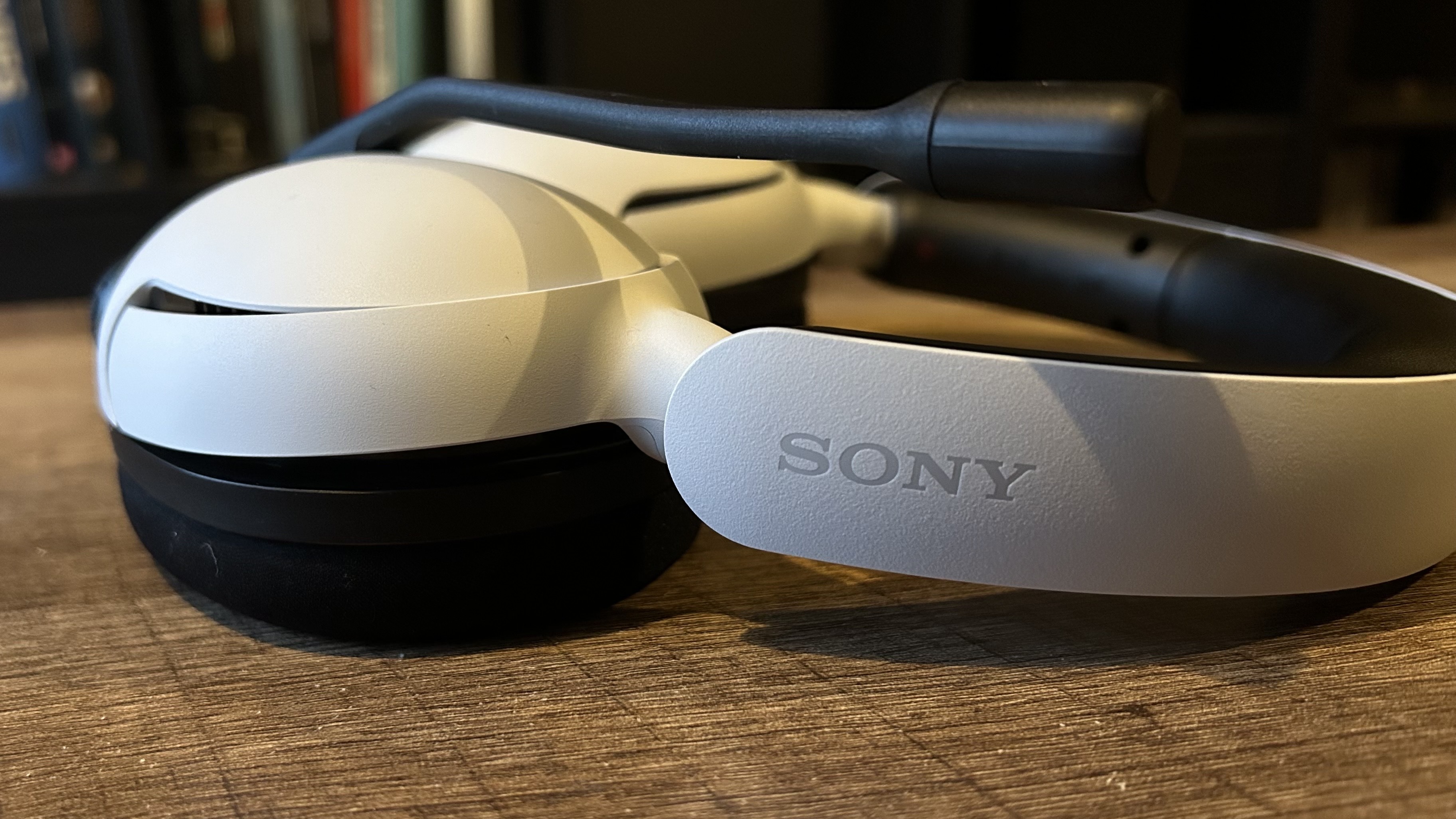
The cynic in me refused to believe that a personal sound profile could be achieved from a few shaky pictures on my iPhone, but I can't argue with the quality of the resulting virtual soundscape. I can't say for sure how much is specifically tailored from the app's understanding of the shape of my ears and how much is a placebo smoke and mirrors effect, but it does sound impressive. Unfortunately for PS5 solo players, these settings aren't stored on the headset itself and are redundant in console use. That's disappointing - you'd expect Sony to be championing its own audio tech for its own console - especially considering the amount of attention the brand paid to the PS5's Tempest Audio in its release. Unfortunately, though, this is the main symptom of a slightly larger issue; the Sony Inzone H5 doesn't exactly know where it belongs.
With no Bluetooth connection it's noticeably lagging in features compared to other similarly priced releases of today; the Razer Barracuda X can offer both PC and PS5 audio with simultanous Bluetooth thrown in for under $100 / £100, for example. A USB-A 2.4GHz dongle further restricts usage, you won't be able to use the H5s as a wireless gaming headset with Nintendo Switch unless you're playing in docked mode. If the H5 wants to be a cross-platform device it should say so, offering the features that multiplatform gaming headsets typically stock. If not, it needs to side with either its PS5-first design or PC-first audio features. There isn't a killer spec making this one or the other right now, and the result is those who exclusive play on either PC or PS5 players are paying for either a design or feature set that won't apply.
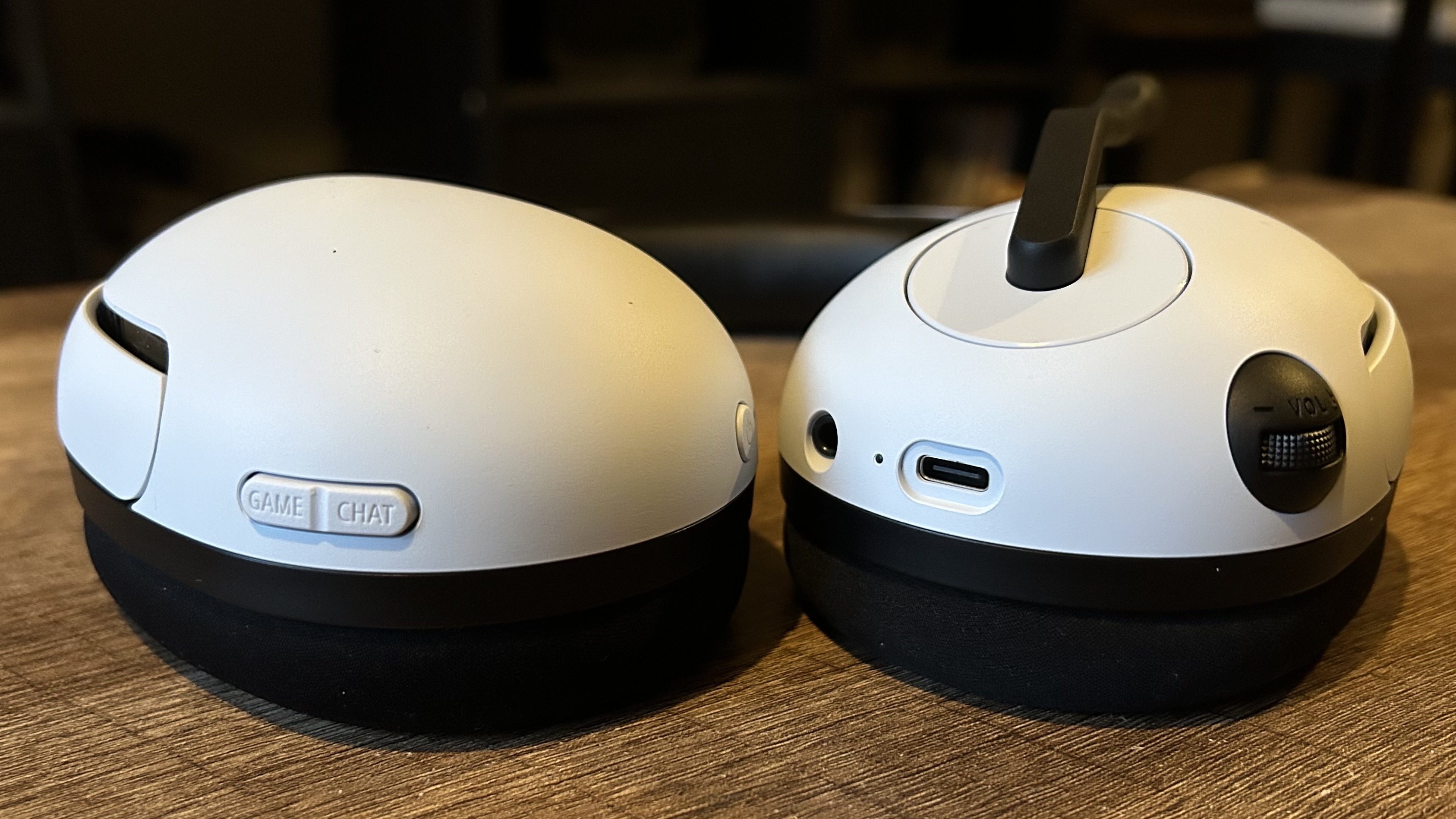
Of course, that's taking a few feature drops to their extremes. There's a massive market for those who play on both PC and PS5 and this is where the Inzone H5s will likely find their happiest home. After all, you're still getting a Sony device designed to draw the most out of the PS5's 3D Tempest Audio as possible - and it's a noticeable leg up from the Pulse 3D Headset. A flip to mute microphone streamlines the entire chat process and performs admirably to boot. I was also pleased to find a solid battery life. Nothing as impressive as the HyperX Cloud Alpha Wireless, but enough to see me through a week or so of testing before plugging in. That handy ten minute fast charge was also generally enough to get me through to the end of a play session if battery did start to run out.
Performance
The Sony Inzone H5 absolutely shines in its sound quality. From the twinkles of Eastward's sound effects and melodies to the more ground pounding ship sounds and bustling city streets of Starfield, the H5s managed to produce detailed, faithful audio with a wide soundstage. There's a smoothness to this audio that I haven't found with other similarly priced headsets, and a full-bodied sense that almost feels like bass. In fact, I initially thought the lower ranges were more sophisticated than the H7s, which struggled in this area. However, putting the H5 to the test in the grungy world of Doom Eternal quickly highlighted the gaps in the soundstage where the punch of a bassline should be. These lower ranges were flattened across the games and music that heavily relied upon them, but the body across the mid-range was nearly robust enough to convincingly compensate when the stage was right for it.
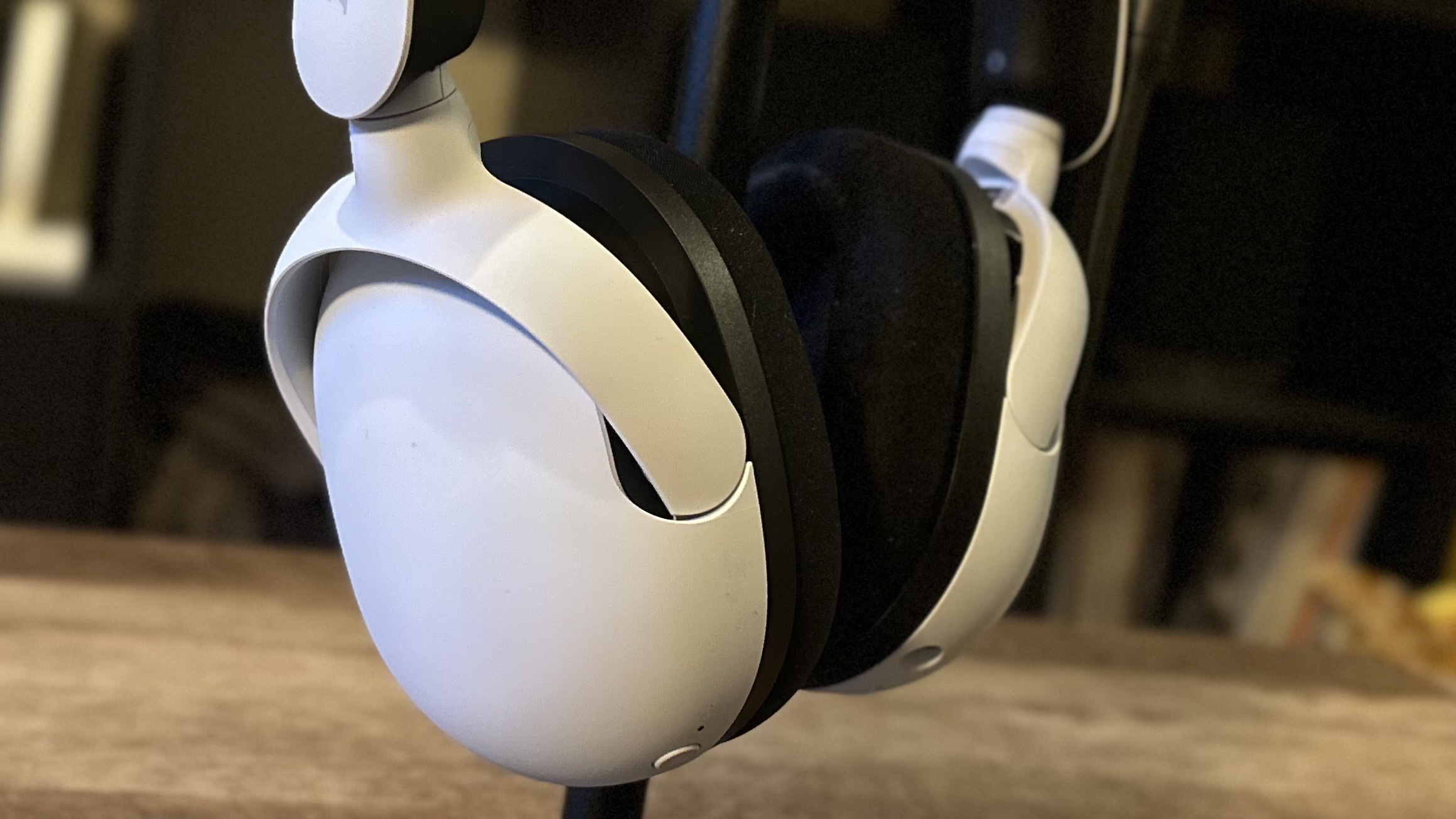
After dutifully taking pictures of my ears (a bizarre practice that I don't see catching on with surround sound protocols), I switched on the Inzone's secret weapon; 360 Spatial Audio. The difference in my trips up and down Neon City's strip was immense. There was a sudden sense of positioning within the scene that was previously blocked by a narrower soundstage, and I was able to pinpoint certain vendor shouts and random NPC dialogues all around me. I used the same scene for testing here as I did the Corsair Virtuoso Pros. While the virtual surround of Sony's entry can't compete with the space afforded by that open back graphene driver, it was certainly a step up from similarly priced competition.
Should you buy the Sony Inzone H5?
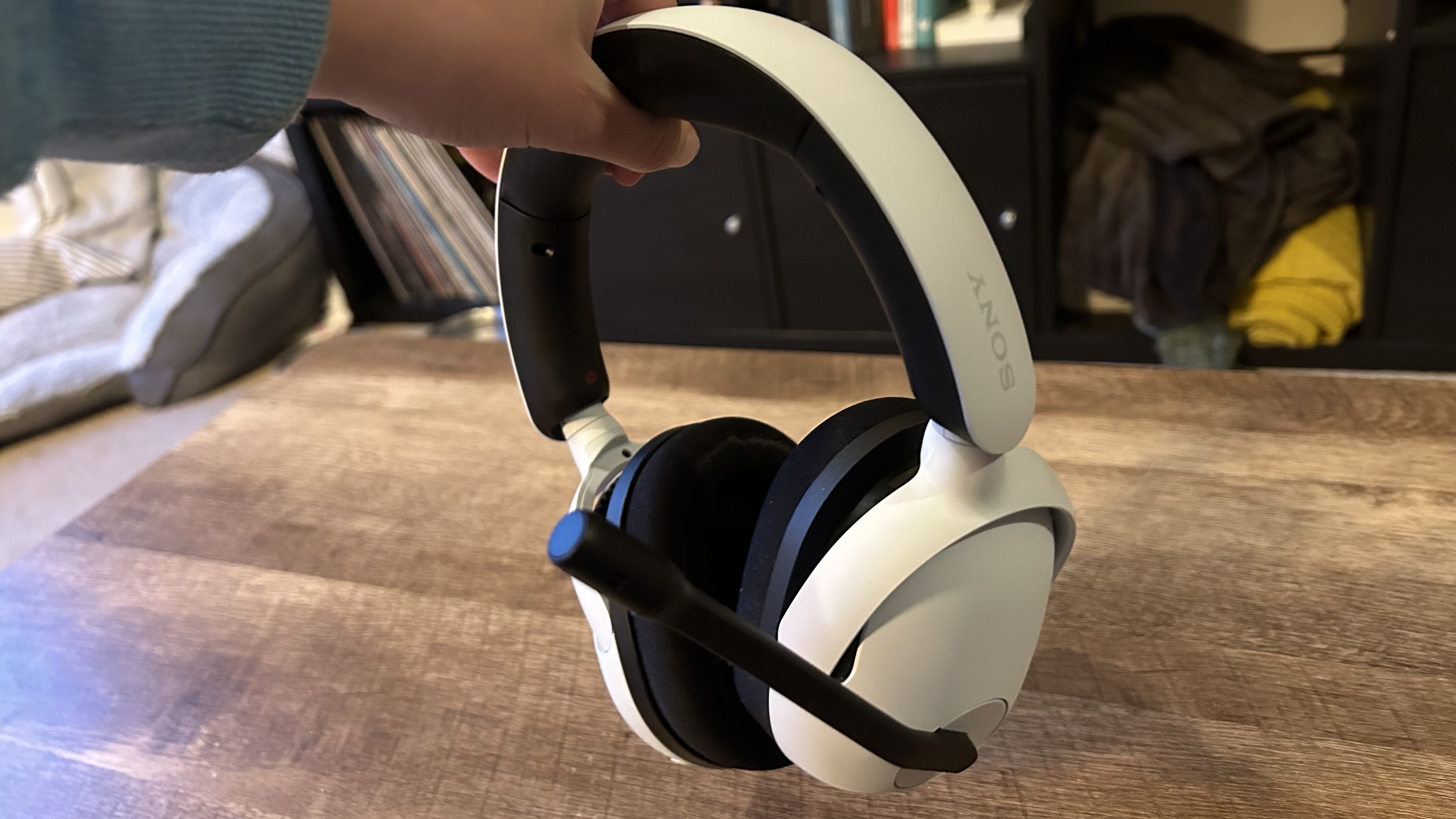
The Sony Inzone H5s sound great, and there's plenty of extra features to keep PC players interested as well. The brand's apparent disinterest in its own console, despite dressing its headset up in the PS5's flag colors, however means this is a headset I would firmly only recommend for PC players. That's disappointing, as the Pulse 3D Headset does a fantastic job for under $100 / £100, but the PS5 is crying out for its own bonafide Sony headset - especially considering the brand's heritage in high quality audio. However, you're dropping too many features from the PC side of play to truly make the Sony Inzone H5 worth it for a solo PS5 player.
For the price, the H5 stands up well against its competitors. It offers a greater sense of depth to its audio than the HyperX Cloud Alpha Wireless, but drops that 300 hour battery life down to 28 hours for a $40 / £50 cheaper MSRP at the same time. Problems come from below this mid-range price point, though.
The Razer Kaira for PlayStation can see you through with only a marginally lower audio quality, but throws in Bluetooth connection options, a boosted battery life, and out of the box compatibility with Nintendo Switch and mobile - all for $99.99 / £99.99. If you're not fussed about surround sound, this is where I'd put my money. It's worth noting, though, that you won't get the same level of long term comfort from Razer's device.
| Specs | Sony Inzone H5 | HyperX Cloud Alpha Wireless | Sony Inzone H7 | Razer Kaira |
|---|---|---|---|---|
| Price | $149.99 / £139.99 | $189.99 / £189.99 | £229 / £199 | $99.99 / £99.99 |
| Connection | 2.4GHz / wired | 2.4GHz / wired | 2.4GHz / Bluetooth | 2.4GHz / Bluetooth |
| Drivers | 40mm | 50mm | 40mm | 50mm |
| Frequency response | 5Hz - 20kHz | 15Hz - 21kHz | 5Hz - 20kHz | 20Hz - 20kHz |
| Microphone | Bidirectional with AI noise reduction | Bidirectional noise cancelling | Bidrectional | Cardioid |
| ANC | None | None | None | None |
| Controls | Power, volume, chat mix | Power, mic mute, volume, chat mix | Power, volume, chat mix | Power, volume, mic mute, chat mix, Bluetooth SmartSwitch |
| Battery | 28 hours | 300 hours | 40 hours | 30 hours |
| Weight | 260g | 337g | 325g | 332g |
| Compatibility | PS5, PS4, PC | PS5, PS4, PC | PS5, PS4, PC | PS5, PS4, PC, Nintendo Switch, mobile |
How we tested the Sony Inzone H5
I used the Sony Inzone H5 headset for all daily work and play over the course of two weeks, testing alongside the H7, Razer Kaira for PlayStation, and Corsair Virtuoso Pro. In that time, I primarily tested across Starfield, Arcade Paradise, and Eastward on PC, and Dead Island 2 on PS5, while also stress testing in Doom Eternal on both PS5 and PC. For more information on how we test gaming headsets, check out the full GamesRadar+ Hardware Policy.
We're also rounding up all the best PS4 headsets, as well as the best Nintendo Switch headsets and the best Xbox Series X headsets if you're after a different platform as well.

Managing Editor of Hardware at GamesRadar+, I originally landed in hardware at our sister site TechRadar before moving over to GamesRadar. In between, I've written for Tom’s Guide, Wireframe, The Indie Game Website and That Video Game Blog, covering everything from the PS5 launch to the Apple Pencil. Now, i'm focused on Nintendo Switch, gaming laptops (and the keyboards, headsets and mice that come with them), PS5, and trying to find the perfect projector.
